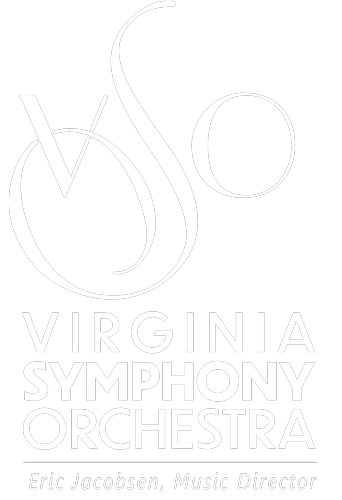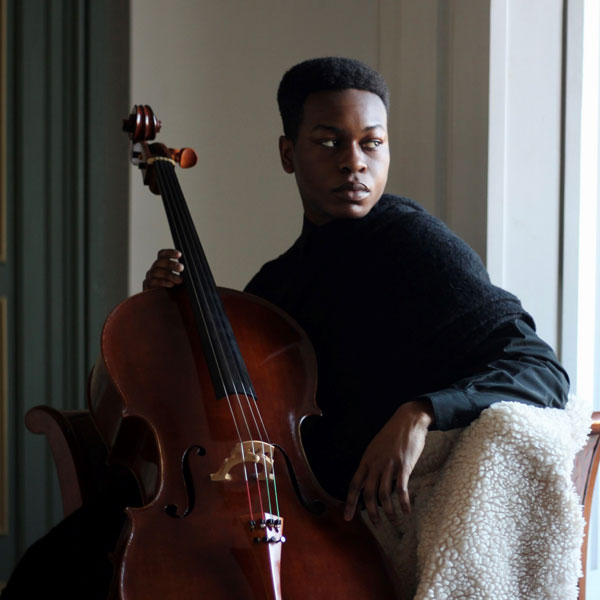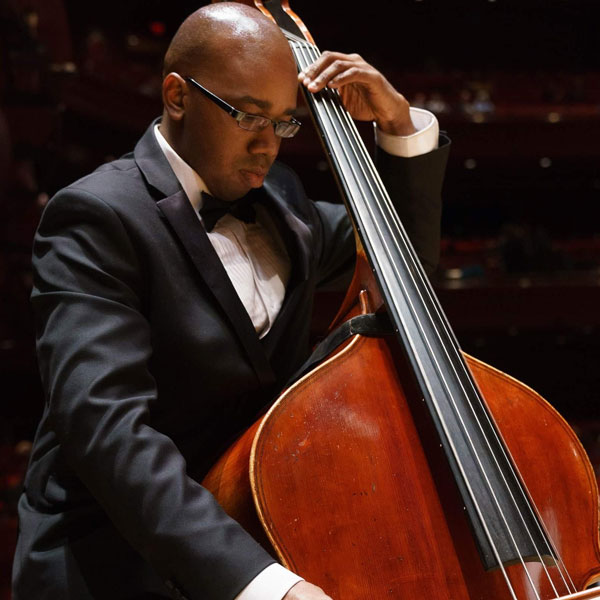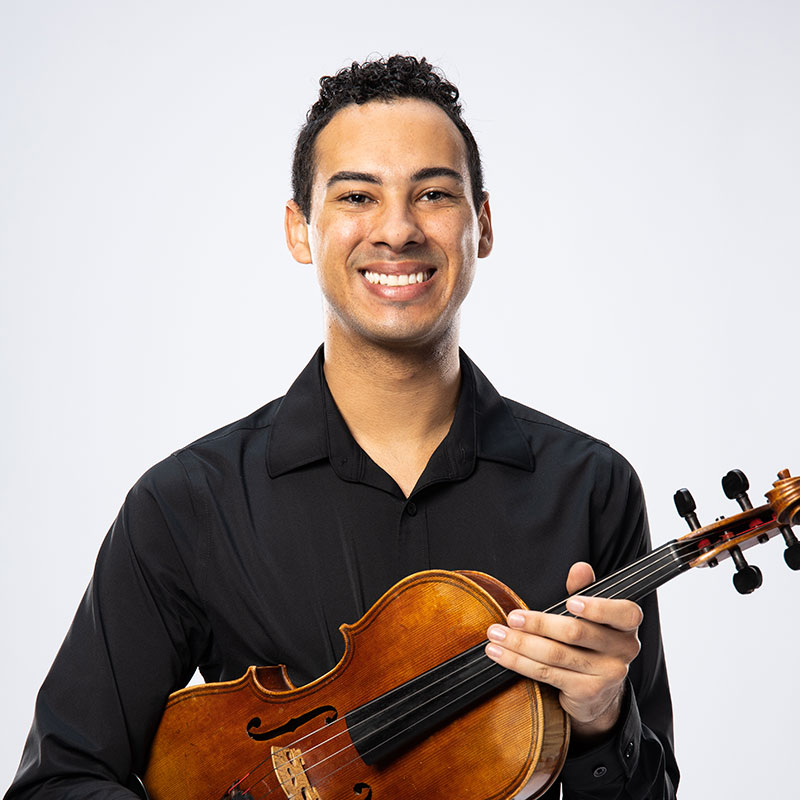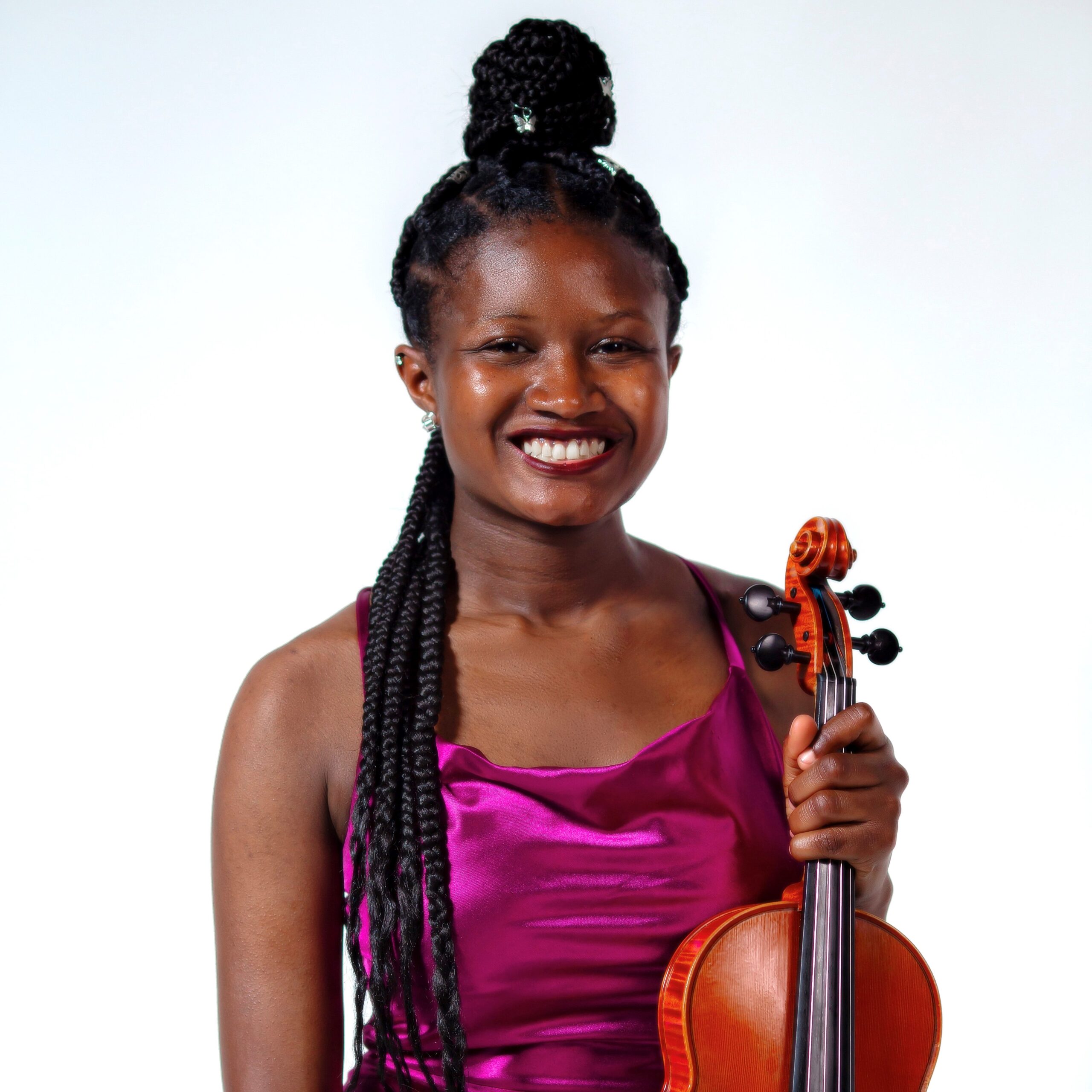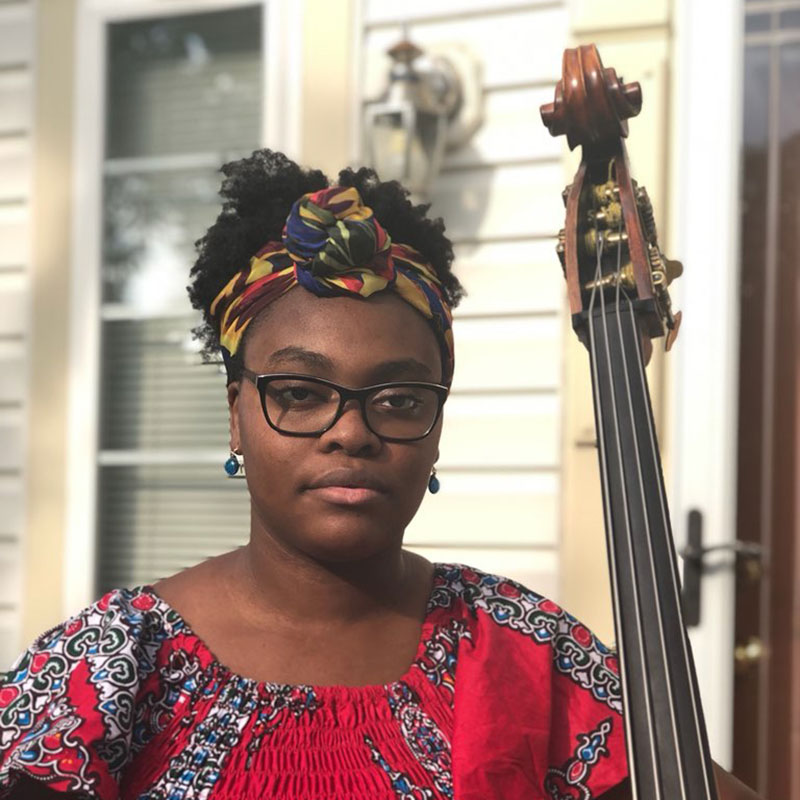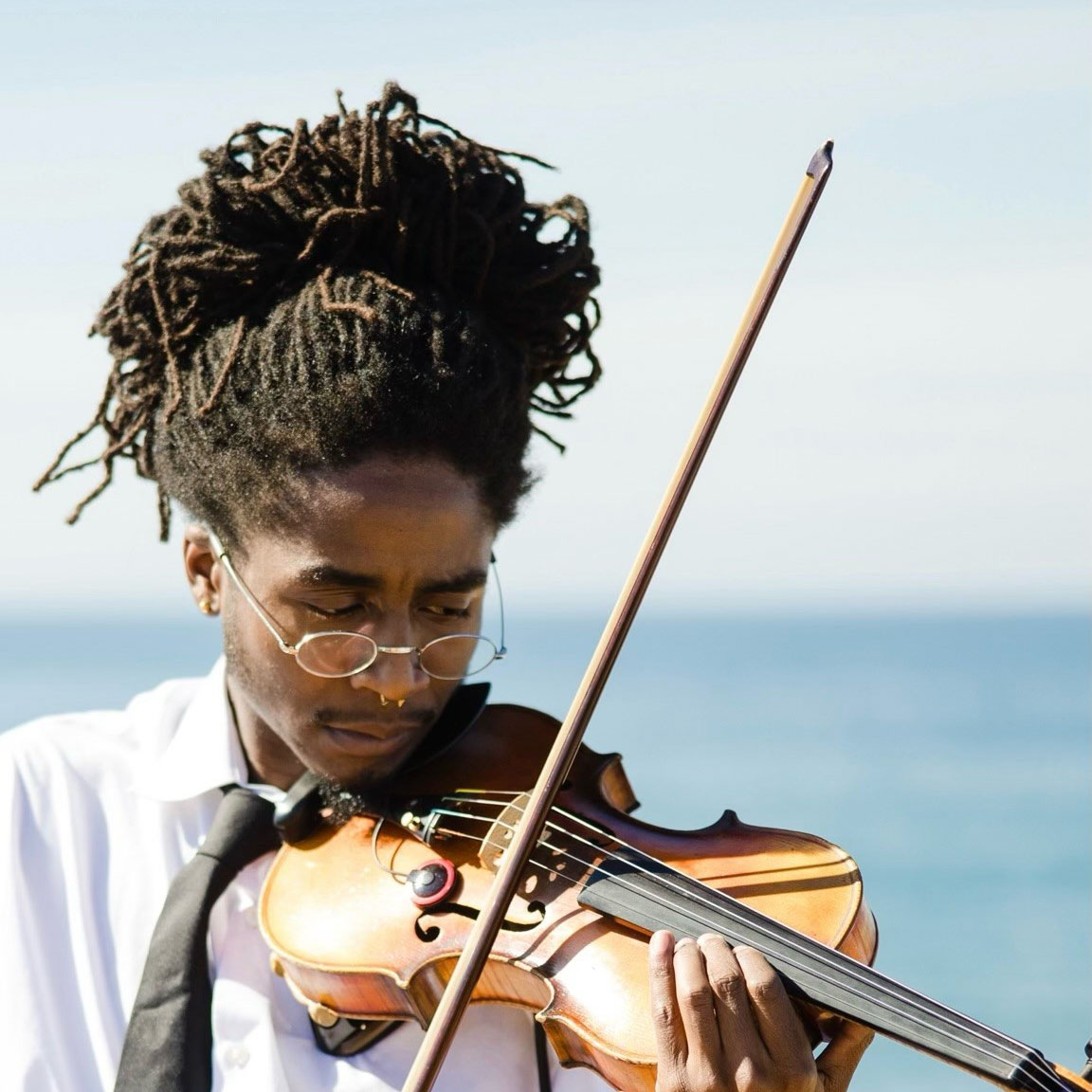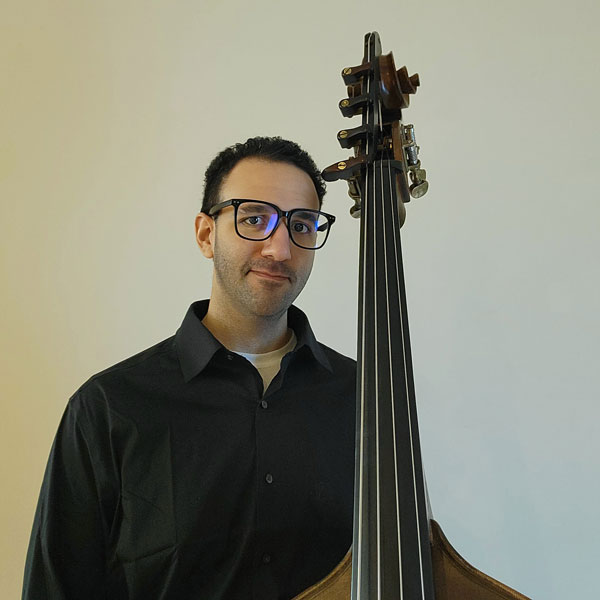What about the music?
An inside look with the Virginia Symphony Orchestra
Highlight: Beethoven Festival
By Stella Feliberti
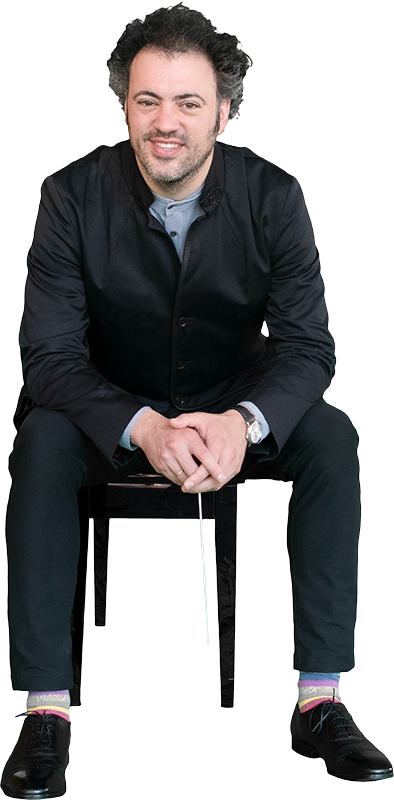
The Performers
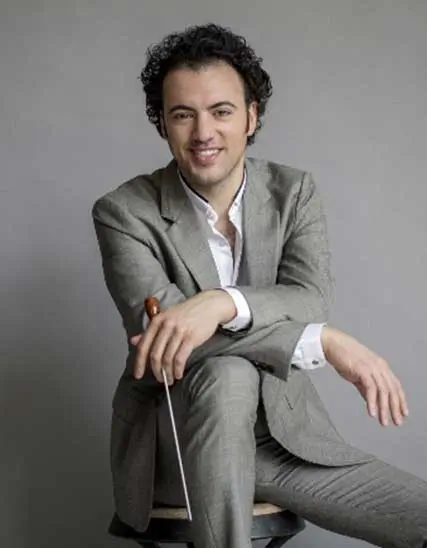
Meet our Conductor
Eric Jacobsen
Hailed by the New York Times as “an interpretive dynamo,” conductor and cellist Eric Jacobsen has built a reputation for engaging audiences with innovative and collaborative programming. He is the newly-named Music Director of the Virginia Symphony, becoming the 12th music director in the orchestra’s 100-year history.
Jacobsen is Artistic Director and conductor of The Knights, and serves as the Music Director for the Orlando Philharmonic Orchestra. Jacobsen founded the adventurous orchestra The Knights with his brother, violinist Colin Jacobsen, to foster the intimacy and camaraderie of chamber music on the orchestral stage. Eric splits his time between New York and Orlando with his wife, singer-songwriter Aoife O’Donovan, and their daughter.
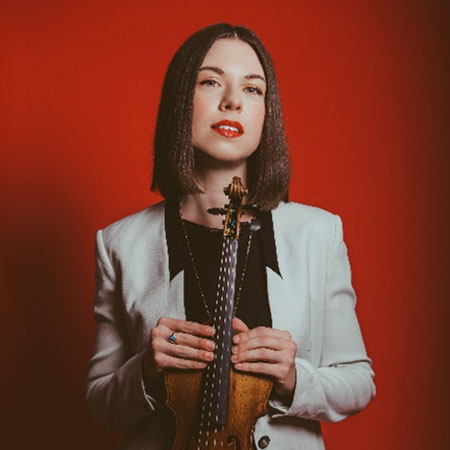
Tessa Lark
Violinist
Violinist Tessa Lark is one of the most captivating artistic voices of our time, consistently praised by critics and audiences for her astounding range of sounds, technical agility, and musical elegance. In 2020 she was nominated for a GRAMMY in the Best Classical Instrumental Solo category and received one of Lincoln Center’s prestigious Emerging Artist Awards: the special Hunt Family Award. Other recent honors include a 2018 Borletti-Buitoni Trust Fellowship and a 2016 Avery Fisher Career Grant, Silver Medalist in the 9th Quadrennial International Violin Competition of Indianapolis, and winner of the 2012 Naumburg International Violin Competition.
She solos regularly with many of the major orchestras around the world, from the Royal Scottish National Orchestra to Seattle Symphony, and has appeared in recital in such prestigious venues and series as Amsterdam’s Concertgebouw and Carnegie Hall’s Distinctive Debuts series in Weill Hall (2017).
She is also a highly acclaimed fiddler in the tradition of her native Kentucky, delighting audiences with programming that includes Appalachian and bluegrass music and inspiring composers to write for her – most notably SKY, a bluegrass-inspired violin concerto written for Tessa by Michael Torke which earned both a GRAMMY nomination for Tessa and a Pulitzer finalist distinction for Torke.
Lark is a graduate of New England Conservatory and completed her Artist Diploma at The Juilliard School. She plays a ca. 1600 G.P. Maggini violin on loan from an anonymous donor through the Stradivari Society of Chicago.

Orli Shaham
Pianist
A consummate musician recognized for her grace, subtlety, and brilliance, the pianist Orli Shaham is hailed by critics on four continents. The New York Times called her a “brilliant pianist,” The Chicago Tribune referred to her as “a first-rate Mozartean,” and London’s Guardian said Ms. Shaham’s playing at the Proms was “perfection.”
Orli Shaham has performed with many of the major orchestras around the world, and has appeared in recital internationally, from Carnegie Hall to the Sydney Opera House. She is Artistic Director of Pacific Symphony’s chamber series Café Ludwig in California since 2007, and Artistic Director of the interactive children’s concert series, Orli Shaham’s Bach Yard, which she founded in 2010.
Highlights of Ms. Shaham’s 2022-2023 concert season include performances with the Finnish Radio Symphony, Pacific Symphony, Orlando Philharmonic, and Vancouver Symphony (USA), where she was named VSO’s inaugural Artist-In-Residence. In 2022, she released Volumes 2 and 3 of the complete Mozart Piano Sonatas. Her Mozart recording project also includes Volume 1 of the Piano Sonatas, and Piano Concertos with St. Louis Symphony all of which are part of her discography of a dozen titles on Canary Classics, Deutsche Gramophone, Sony, and other labels.
Orli Shaham is a Co-Host and Creative for the national radio program From the Top. She is on the piano and chamber music faculty at The Juilliard School and is chair of the board of trustees at Kaufman Music Center in New York.
Orli Shaham has been a Steinway Artist since 2003
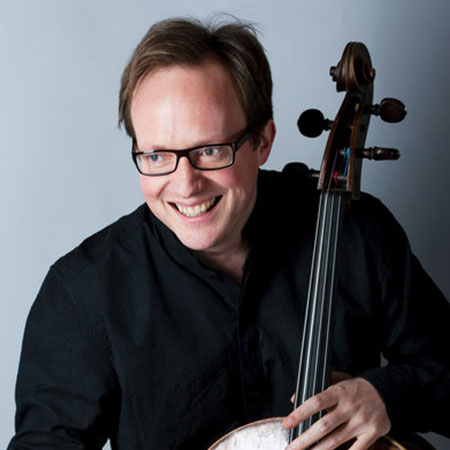
Raphael Bell
Cello
American cellist Raphael Bell enjoys a varied career as a chamber musician, teacher, festival director and orchestra member. He is currently principal of the Antwerp Symphony Orchestra in Belgium, co-Artistic Director of La Loingtaine in Montigny-sur-Loing, France, and co-founder and co-Artistic Director of the Charlottesville Chamber Music Festival.
As a chamber musician he has performed at Wigmore Hall, Queen Elizabeth Hall, Salle Gaveau, Berlin Philharmonie, Koln Philharmonie, Luzerner Theater, Tokyo Suntory Hall, and Kyoto Concert Hall. He was part of the IMS Prussia Cove tour that won the Chamber Music Award from the Royal Philharmonic Society in London. Solo performances include concertos with the Kristiansand Symphony Orchestra, the Tokyo Luft Ensemble, and the Royal Flemish Philharmonic where he performed the Brahms Double Concerto on tour with conductor Philippe Herreweghe. He has also performed with the Munich Philharmonic, Scottish Chamber Orchestra, and Chamber Orchestra of Europe. Bell studied at The Juilliard School.
The Creators

Pronunciation Guide: Lood- vig van Bait- oh-ven
Ludwig van Beethoven – Triple Concerto and Symphony No. 7
Fast Facts:
- Beethoven started composing around age 9 and published his first compositions in 1783.
- Beethoven learned how to play violin, viola, and piano from a very young age. He got his first job as a musician as the court’s organist under Christian Gottlob Neefe.
- Beethoven started to study under Franz Joseph Haydn in 1792 where he took counterpoint lessons and studied violin.
- Beethoven is known for writing masterwork Symphonies but is also highly regarded for his chamber music, especially his string quartets.
- Beethoven is known for leading the transition from the Classical Era into the Romantic Period, leading to his high regard as one of the most famous composers of all time.
- While most consider Beethoven to be completely deaf by his later symphonies, including the 7th Symphony played on this concert, he did not lose his hearing completely until 1826 when his String Quartet in B-flat Op.130 premiered.
The Pieces
Beethoven Triple Concerto
In traditional concertos, the orchestra features one musician as a soloist who plays with the entire orchestra as its accompaniment. After writing three piano trios in 1795, Beethoven once again decided to reconstruct the piano trio instruments (violin, cello, and piano) for a much larger stage: as a collective soloist, which had never been done before – and hasn’t since.
Cellist Brinton Averil Smith describe playing this piece as being easing than a typical concerto since “you have two friends with you and performing this concerto has some of the most enjoyable aspects of chamber music.” Yet, he notes that one of the hardest parts of performing this concerto “is finding a way to arrange the three instruments so that [they] all see each other and the conductor!”
Since Beethoven chose such an uncommon “soloist” for his Triple Concerto, he ran into some unique struggles in composing the piece. The most prominent is the balance between registers of the three soloists, especially with the cellist. Thus, Beethoven gave the cellist the introduction of the most thematic material in the 1st Movement: Allegro in its highest register to counteract the register and sound of the violin and piano, in addition to the orchestra. With the cellist introducing the piece’s main melody, the 1st Movement is distinguished by its heroic march character.
Contrasting the 1st Movement, the 2nd Movement: Largo starts with a longing melody introduced by the cellist once again. The violin slowly intertwines with the cellist’s long and flowing melody, which the piano lightly accompanies the entire movement. From the long melodies of the 2nd Movement, the concerto concludes attacca into the Final Movement: Rondo Alla Polacca, started by the repeated notes of the cellist that became a major motif of the last movement.
The final movement is noted as Ronda Alla Polacca, meaning the piece starts with one theme (Theme A) and alternates between various other themes, returning to Theme A after each new theme. Polacca refers to the style of the piece: a polonaise, which is a Polish Dance that was the emblem of aristocratic fashion during the Napoleonic era. This final movement is characterized by its lush and jovial bouncing themes.
Symphony No. 7
This Symphony was composed between 1811 and 1812 and premiered at the University in Vienna on December 8th, 1813. During its premiere, the 2nd Movement: Allegretto was so popular that audiences demanded an encore. To this day, the Allegretto is frequently performed separately to this day.
Like his 3rd and 5th Symphony, Beethoven’s 7th Symphony seems to be inspired by Napoleon’s campaigns. This symphony, however, was composed and inspired by the European wars of liberation from Napoleon’s domination.
This symphony is known not only for its Funeral March style Allegretto, but for its use of rhythmic devices to evoke dance-like characteristics. These dotted rhythms that create a dance-like atmosphere are evident in the Vivace of the 1st Movement. The 2nd Movement, however, is the only movement that doesn’t contain a dance-like air. Instead, it imitates a funeral march as the melodies lament as each section takes over the melody. The 3rd Movement returns to the dance-style music with a scherzo contains a trio based on an Austrian pilgrim’s hymn. Finally, the piece closes with a fast and fiery melody that is passed and echoed throughout the strings the entire movement, imitating a whirling dance-energy.
